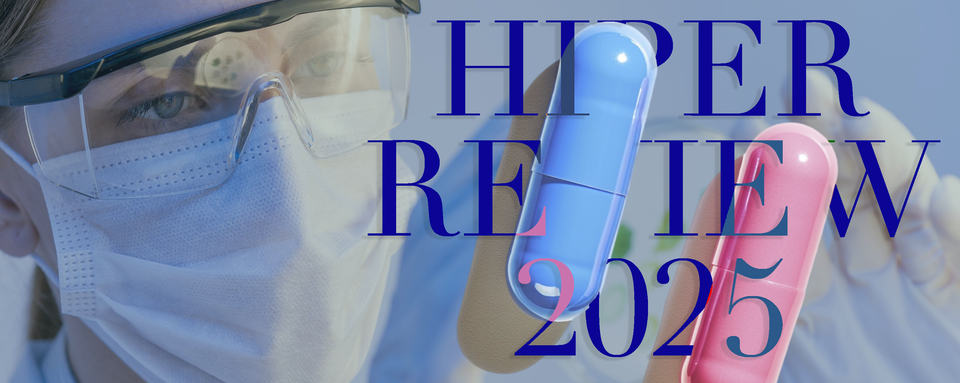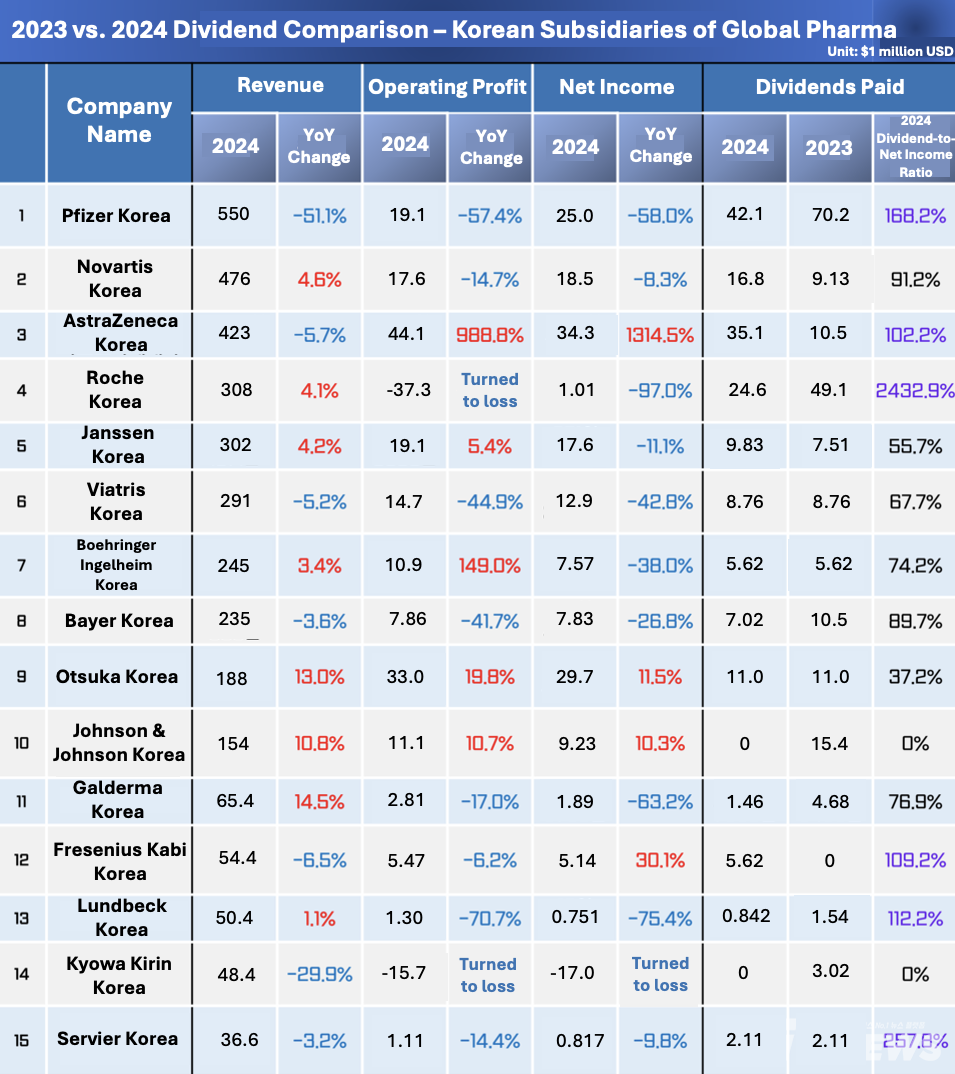Roche Korea Posts 2,432.9% Payout Ratio
Concerns Grow Over Financial Stability of Local Branches Amid Restructuring

Six multinational pharmaceutical companies, including Roche Korea, paid dividends to their overseas parent firms in 2023 that exceeded their annual net profits, according to recently filed audit reports.
A review by Hit News of 15 multinational pharma subsidiaries in Korea that disclosed dividend data—out of 35 that submitted reports to the Financial Supervisory Service—revealed that Pfizer Korea, AstraZeneca Korea, Roche Korea, Fresenius Kabi Korea, Lundbeck Korea, and Servier Korea distributed dividends beyond their net income for the year.

Roche Korea recorded the highest payout ratio at 2,432.9%. While its revenue rose 4.1% year-over-year to approximately $309 million, the company posted an operating loss and a 97.0% drop in net income. Despite cutting its dividend in half from $49.1 million in 2022 to $24.6 million in 2023, the payout still amounted to more than 20 times its annual profit. The dividend was issued to its sole shareholder, Switzerland-based Roche Finance Ltd.
In absolute terms, Pfizer Korea and AstraZeneca Korea ranked highest. Pfizer Korea paid $42.1 million in dividends to ‘PF OFG South Korea 1 B.V. (which owns 99% of the firm)’, and AstraZeneca Korea paid $35.1 million to ‘AstraZeneca Continent B.V. (100% ownership)’. Their payout ratios were 168.2% and 102.2%, respectively, surpassing their 2023 net incomes of $25.1 million and $34.3 million.
While some experts caution that dividend decisions are not always based solely on the most recent year’s earnings—often reflecting performance from prior years—the sizable discrepancies raise questions about capital allocation and R&D strategies.
Many global pharmaceutical firms do not operate R&D centers in Korea. Instead, subsidiaries provide funds to parent companies through dividends, which are then redirected to support global research activities. For example, Roche allocated approximately $15.8 billion, or 21.5% of its $73.4 billion global revenue in 2024, to R&D. These funds are sourced from its global network of subsidiaries and distributed based on strategic priorities.
Despite lacking in-house research facilities, Roche Korea increased its local R&D investment from $32.3 million in 2023 to $35.4 million in 2024. The company noted that such funding is essential for joint research with South Korean biotech firms and participation in global clinical trials.
A representative explained, “We’re continually investing in joint research projects with Korean biotech pipelines and supporting investigator-initiated trials at local medical institutions. These efforts require ongoing R&D funding.”
However, concerns are mounting that large dividend outflows amid falling operating profits—and ongoing disputes with health authorities—could compromise financial stability at local subsidiaries.
Earlier this year, several firms, including Viatris Korea, Janssen Korea, Novartis Korea, Kyowa Kirin Korea, Amgen Korea, and GSK Korea, announced restructuring measures. While not necessarily linked, Kyowa Kirin Korea—now focused solely on rare disease treatments—paid $3 million in dividends to its Japanese parent in 2022 but halted payments in 2023.
With Korea’s healthcare environment still under strain in 2024, industry watchers are closely monitoring whether this trend of high dividend payouts will persist into the coming year.

